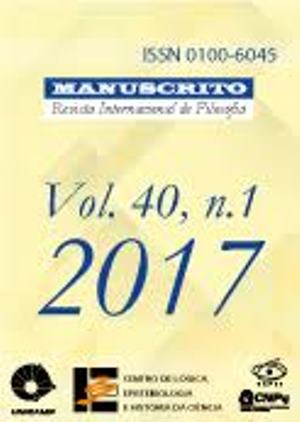Resumo
Many philosophers believe in the Block Universe containing all objects and events – those that we intuitively call past, present, and future. But some of those who endorse this ontology of time also believe that objects persist by enduring – by being present in their entirety at all moments at which they exist. This combination of views, the Block Universe with Endurance, has survived the initial assault of the problem of temporary intrinsics and of several later objections. But I argue that the Block Universe with Endurance fails to account for a striking feature of our temporal experience and must be rejected in favor of the Block Universe with Exdurance.Referências
Balashov, Y. “Times of Our Lives: Negotiating the Presence of Experience,” American Philosophical Quarterly 42: 295–309, 2005.
Balashov, Y. “Experiencing the Present,” Epistemology and Philosophy of Science 44: 61–73, 2015. Bayne, T. The Unity of Consciousness. Oxford: Oxford University Press, 2010.
Grünbaum, A. “The Exclusion of Becoming from the Physical World,” in M. Čapek, ed., The Concepts of Space and Time (Dordrecht: Reidel), pp. 471–500, 1976.
Haslanger, S. “Persistence Through Time,” in M.J. Loux and D.W. Zimmerman (eds.), The Oxford Handbook of Metaphysics (Oxford: Oxford University Press), pp. 315–54, 2003.
Hawley, K. How Things Persist. Oxford: Clarendon Press, 2001. Hoy, R. “Becoming and Persons,” Philosophical Studies 34: 269–280, 1978.
Lewis, D. “Attitudes De Dicto and De Se,” Philosophical Review 88: 513–543, 1979.
Lewis, D. “Survival and Identity,” in D. Lewis, Philosophical Papers (Oxford: Oxford University Press), Vol. 1, pp. 55–77, 1983.
Lewis, D. On the Plurality of Worlds. (Oxford: Basil Blackwell), 1986. Mellor, D.H. (1998), Real Time II. London and New York: Routledge, 1998.
Merricks, T. “On the Incompatibility of Enduring and Perduring Entities,” Mind 104: 523–531, 1995.
Oaklander, L. N. “On the Experience of Tenseless Time,” in N.L. Oaklander and Q. Smith, eds., The New Theory of Time (New Haven and London: Yale University Press), pp. 344–350, 1994.
Parfit, D. “Personal Identity,” Philosophical Review 80: 3–27, 1971.
Parfit, D. Reasons and Persons. Oxford: Clarendon Press, 1984.
Parfit, D. “Divided Minds and the Nature of Persons,” in P. van Inwagen and D. Zimmerman, eds., Metaphysics: The Big Questions, 2nd ed. (Oxford: Blackwell Publishing), pp. 361–362, 2008.
Perry, J. “The Problem of the Essential Indexical,” Noûs 13: 3–21, 1979.
Sider, T. Four-Dimensionalism: An Ontology of Persistence and Time. Oxford: Clarendon Press, 2001.
Skow, B. “Experience and the Passage of Time,” Philosophical Perspectives 25: 359–387, 2011.
Skow, B. Objective Becoming. Oxford: Oxford University Press, 2015. Torre, S. “Tense, Timely Action and Self-Ascription,” Philosophy and Phenomenological Research 80: 112–132, 2010.

